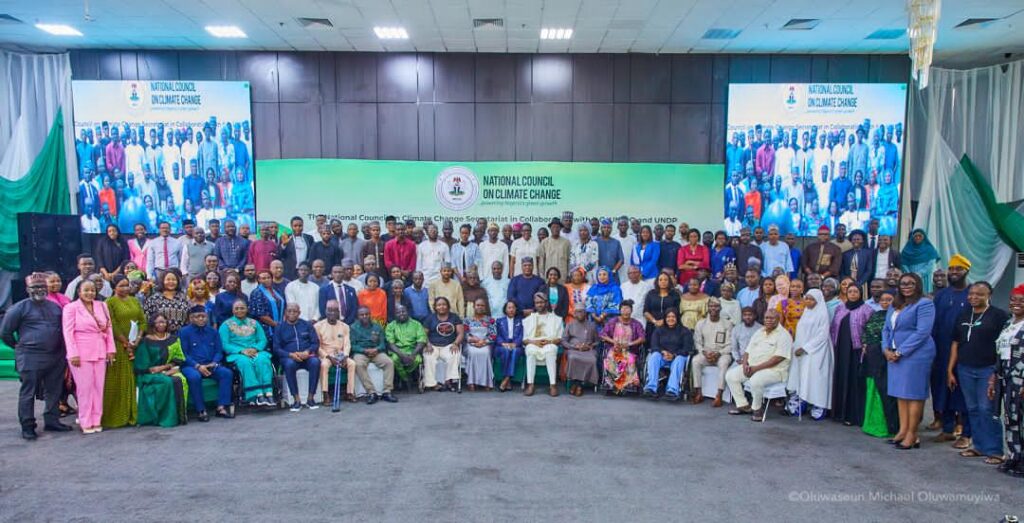The National Council on Climate Change (NCCC) affirms the Just Transition Guidelines and Action Plan, a blueprint to drive fair, inclusive, and sustainable economic transformation.
By Bunmi Yekini

Nigeria has taken a decisive step toward achieving a fair and sustainable low-carbon future with the official validation of the Just Transition Guidelines and Action Plan (JT-GAP) by the National Council on Climate Change (NCCC).
The validation ceremony, held on October 6–7, 2025, at the Nigeria Air Force Conference Centre, Abuja, marked a significant milestone in the country’s climate action efforts and transition toward a green economy.
Developed by the Centre for Climate Change and Development (CCCD), Alex Ekwueme Federal University, Ndufu-Alike, with support from the International Labour Organization (ILO), United Nations Development Programme (UNDP), and United Nations Industrial Development Organization (UNIDO), the JT-GAP has been described as a model of evidence-based and inclusive policymaking.
Speaking at the event, Mrs. Tenioye Majekodunmi, Director-General of the NCCC, hailed the document as “a comprehensive, evidence-based, and professionally crafted framework that reflects Nigeria’s unwavering commitment to an equitable energy transition and decarbonization pathway.”
She emphasized that the JT-GAP aligns seamlessly with the nation’s Nationally Determined Contributions (NDCs), Energy Transition Plan (ETP), and net-zero ambitions, noting that the plan was developed through broad national and international consultations.
“The Just Transition is not merely an environmental agenda but a people-centered development vision that ensures economic growth, social justice, and environmental sustainability move hand in hand,” Majekodunmi said.
“We must all take ownership of this report and work together to ensure its timely and effective implementation,” she added.
Lead Consultant and climate policy expert, Prof. Chukwumerije Okereke, expressed satisfaction with the quality and ambition of the document, describing it as a “vital tool” for integrating climate action with Nigeria’s development priorities.
“Our report offers insights on how Nigeria can unlock new opportunities in green growth, innovation, and emerging industrial ecosystems while taking ambitious climate action,” Okereke noted.
“By embedding fairness and inclusivity at the core of our transition effort, the JT-GAP, if implemented, will protect workers, women, youth, and vulnerable communities while helping Nigeria mitigate critical risks such as job displacement and stranded assets,” he added.
The two-day event featured technical review sessions led by experts including Prof. Emmanuel Oladipo and Dr. Austine Sadiq Okoh, who underscored the importance of gender inclusion, youth empowerment, and social equity, key principles in achieving a just transition.
Stakeholders from government ministries, civil society, labor unions, women’s and youth groups, development partners, and the private sector participated in the deliberations, reaffirming Nigeria’s commitment to ensuring that “no one is left behind” in its energy transition journey.
The validation ceremony drew dignitaries including Mr. Ibrahim Shelleng, Senior Special Assistant to the President on Climate Finance and Stakeholder Engagement; members of the House of Representatives Committee on Climate Change; and representatives from states and development agencies.
Participants unanimously endorsed the JT-GAP, describing it as a transformative framework for aligning economic growth with environmental responsibility.
With its validation, Nigeria signals a new dawn for climate justice, emphasizing social equity, decent jobs, and community well-being as central pillars in the nation’s pathway to a low-carbon and climate-resilient future.
